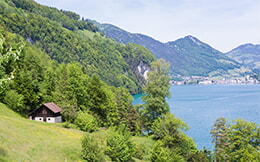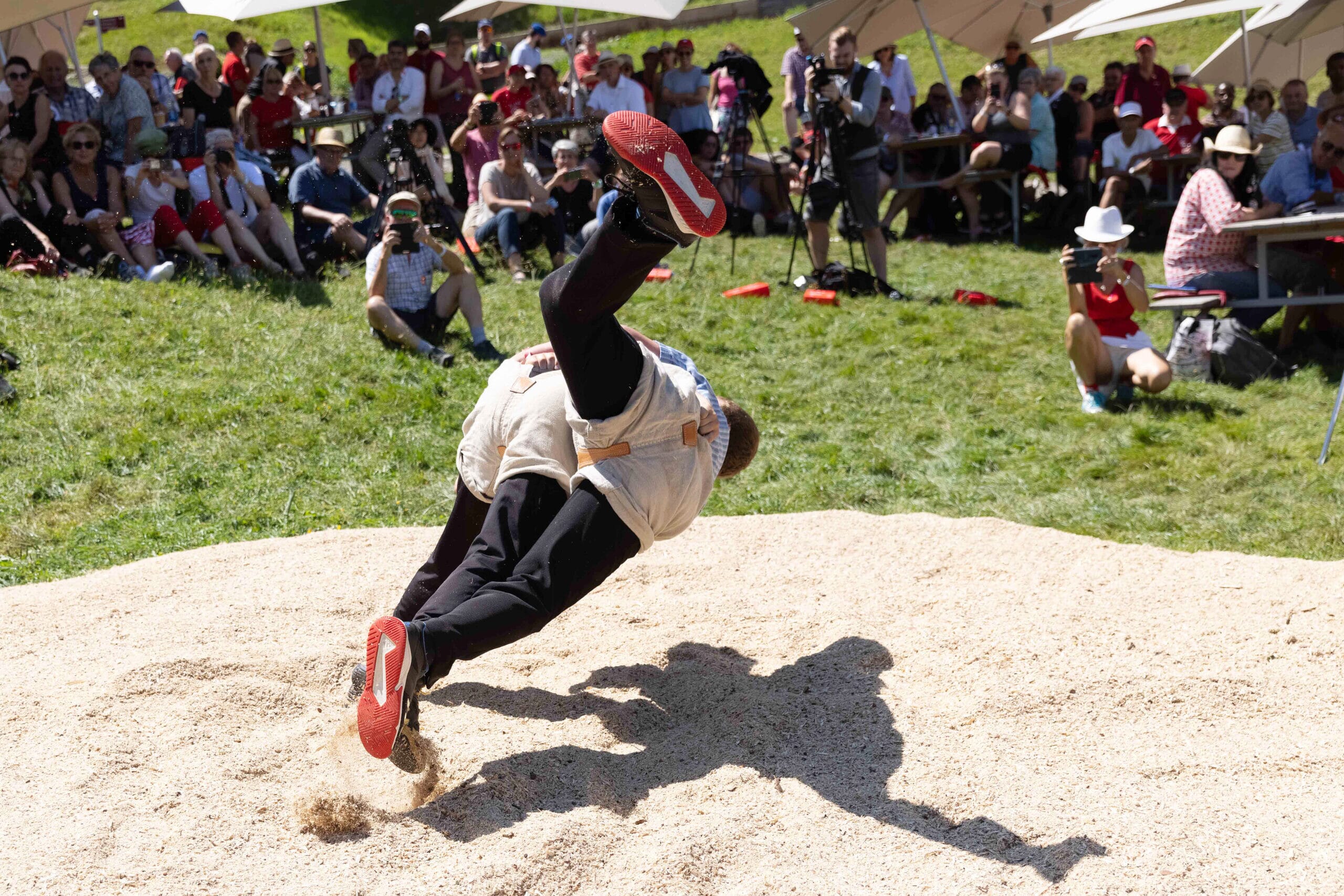4. April 2020
Exhibition at the Musée Grütli: Faces of social welfare
Interrupted Journeys: faces of social welfare:[nbsp]Saturday,[nbsp]13th[nbsp]June[nbsp]2020[nbsp]to 11th November 2021
Opening, to which the public is cordially invited: Saturday,[nbsp]13th June 2020, 11.30 am.
Since 2017, filmmaker and photographer Ghislaine Heger has staged an exhibition portraying welfare recipients at over 15 locations in French-speaking Switzerland. Parallel to the travelling show, she has organized numerous panel discussions and lectures on the subject of poverty and social welfare.
Since 2017, filmmaker and photographer Ghislaine Heger has staged an exhibition portraying welfare recipients at over 15 locations in French-speaking Switzerland. Parallel to the travelling show, she has organized numerous panel discussions and lectures on the subject of poverty and social welfare. The Swiss Society for the Common Good (SSCG), which manages the Rütli and runs the Musée Grütli there, found the subject so critical that it financed the translations into German, sound recordings, film productions and technical installations at the museum. The exhibition will be held at the cradle of the Swiss Confederation during the summer seasons of 2020 and 2021. For this special exhibition on the Rütli, Ghislaine Heger joined forces with scenographer Michia Schweizer to create a new version of the show featuring interactive elements.
Faces, stories and paths changed for life by chance occurrences
The people portrayed in the exhibition are between 19 and 63 years old. Their fates as individuals are different: a dismissal, an accident, a divorce, a tormented childhood, an unstable professional situation, or a little bit of everything at once. Some of the people portrayed needed social welfare only for a few weeks or months, others have been living on it for several years. The precariousness of their situations not only hinders social and cultural participation but also leads to the loss of social ties and to psychological and moral hardship, which is aggravated by the prejudices that stigmatize them as profiteers, abusers or shirkers. The portraits were taken at the individuals homes. Most of the people who agreed to take part in the exhibition project had a hard time dealing with their portraits, which froze them in unenviable situations they would have preferred never to have known.[nbsp]
A self-reflective, non-voyeuristic approach
Through this exhibition, Ghislaine Heger and Michia Schweizer give a voice to people who often have none of their own and allow them to be as they are without prejudice or condemnation. Above all, the photographer/filmmaker tries to dispel simplistic clichés about social welfare and its beneficiaries. She aims to make us aware that the story of people experiencing poverty could just as well be or become our own. The exhibition “Itinéraires entrecoupés” (Interrupted Journeys) deals with social rights and social welfare. The individuals affected are in the foreground, and their photographic portraits appear as fruitful, respectful dialogues with the photographer/filmmaker who conceived the exhibition. Anyone who looks at the photographs of the people affected by poverty creates their own stories about them, which in turn has an effect on the people depicted. This process aims to question our own prejudices and stereotypes. When we bring the photographic portraits and oral testimonies together, we recognize new perspectives and begin to ask ourselves: What if it were me? When you look at the pictures, you realize how drastically and how quickly a destiny you had hoped would always be linear and predictable can be turned upside down.
The exhibition makers
In 2008, Ghislaine Heger, creator, photographer and filmmaker of the “Interrupted Journeys” project, faced the embarrassment of having to ask the state for social assistance. She experienced the humiliation of having to expose herself in front of counsellors who, in an instant, turned her into a child and took away what little she had left. At this point, she was forced to deal with her own prejudices towards welfare recipients. She informed herself about their lives and got to grips with their stories and faces, which were sometimes damaged, sometimes smiling, sometimes disillusioned. After studying filmmaking at the Geneva School of Art and Design (HEAD), Ghislaine Heger directed short films and worked for numerous production companies in Switzerland as well as for film festivals and other audiovisual institutions. Between 2012 and 2016 she coordinated the Short Film Night tour in French-speaking Switzerland and Ticino. Today, she directs film and photographic documentary projects and works for cultural events in French-speaking Switzerland.[nbsp]
For the Musée Grütli exhibition, Ghislaine Heger and Michia Schweizer have created an unusual structure. It gives visitors a multisensory experience that illustrates the connection between the theme, the people involved and their own existence. Michia Schweizer has worked as a socio-cultural animator in Fribourg for many years and created stage designs for several theatre productions.



